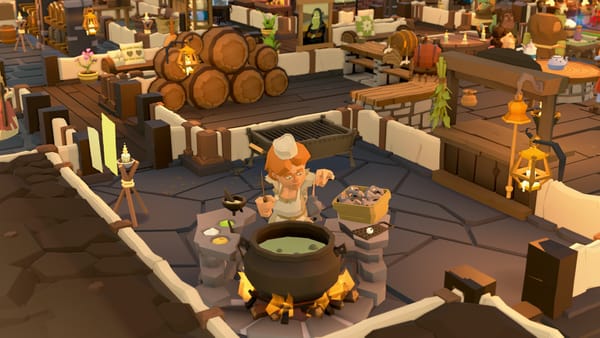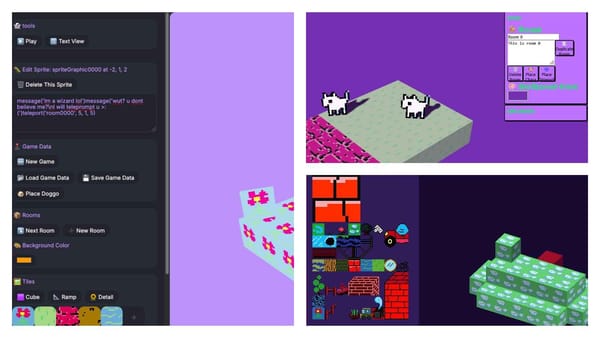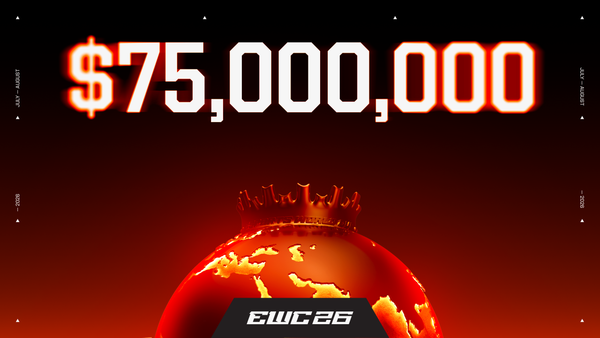The Success of War Robots in Germany and My.Games' Road to China




My.Games celebrates the tenth anniversary of War Robots. To date, the mobile shooter has generated revenues of more than 900 million US dollars. Germany is one of the top 5 markets for the game. With the release in China, the billion dollar mark is likely to be reached. Executive Producer Boris Burangulov and CEO Elena Grigorian talk about the opportunities and challenges in China.
My.Games is celebrating the 10th anniversary of War Robots, its mobile multiplayer shooter developed by in-house studio Pixonic. To date, the game has attracted more than 270 million registered players and generated more than 900 million US dollars in revenue. In 2023 alone, there were more than 28 million installs across all platforms. The game now has up to five million monthly users, with around 600,000 logging on every day. According to data.ai, War Robots is consistently among the top 5 shooters by revenue in its key markets: US, Japan, Germany, UK and Korea.
"War Robots is a unique example of the game that not only successfully performs for 10 years in a very competitive market, but continues to grow year to year," said Elena Grigorian, CEO of My.Games. "We are very pleased with these results and the fact that, even after years, we have been able to continue to unlock the potential of the project and enter new markets - China, for example."
Europe is a key market for War Robots, with Germany standing out as one of the best performing countries. Germany is among the top 5 regions worldwide in terms of lifetime revenue, and the game is among the top 3 shooters by revenue in 2023. There are around five million players of War Robots in Germany. They generate approximately 35 million US dollars in revenue.
"Upon release, the game was called Walking War Robots – which later dropped the 'Walking' part to become War Robots. Its metrics weren’t the best by modern standards, but it quickly gathered a loyal community of fans. That drove the team to keep improving it. Constantly updating the game is a part of Pixonic's modus operandi, which played a major role in the development of War Robots," says My.Games. The game was remastered in 2020. To celebrate the 10th anniversary, the Pixonic team has prepared a major in-game event with new content, the traditional War Robots Live Show with announcements and insights from the developers, and new merchandise for fans.
Another big step for War Robots is its release in China in 2024, which the team has been working hard to achieve for many years. War Robots is one of 27 games to receive an ISBN licence for release in China in 2023. The developers have been working towards this for five years.
GamesMarkt: How important is the expansion into China for My.Games?
Elena Grigorian: "The Chinese market is of significant importance to us, being one of the key regions in the gaming industry. The Asia-Pacific region accounted for more than half of players worldwide in 2023, with approximately 40 per cent of players in the region hailing from China. China stands out as a mobile-first games market, with 727 million people in the country playing games, out of which 680 million play on mobile devices. In total, Chinese mobile players represent around 24 per cent of the total mobile players worldwide. Mobile games in this region contribute to approximately 30 per cent of the global revenue in the mobile games market. Naturally, we anticipate the introduction of our other projects into this market, and we are actively working towards that goal."
GamesMarkt: Was it difficult to get approval for the Chinese market?
Elena Grigorian: "Oh, certainly! For the context: War Robots was available in China in 2018, but then we lost the license in 2021, when China started imposing restrictions on games. So yeah, it took a pretty long time and tons of effort to get back. And this is taking into account that we started preparing for the return even before War Robots was removed from the Chinese App store. The ISBN license is the one most important thing you need to get published in China – without it, no one will allow you to. And getting one is a tricky process. In theory, it looks easy: you adapt your game to meet the requirements of the Chinese government, apply for review, get a license. In reality, the guidelines are vague and tend to change quite unexpectedly. Additionally, the government body responsible for the review only considers a few games a year. It took us years of waiting and occasional build modifications to obtain the ISBN. When in 2023 we finally received the ISBN license, we spent most of the year adapting the game for the Chinese market once again. So, getting back to the original question: yes, the whole process was very difficult and time consuming – but it all was worth it in the end."
GamesMarkt: Do you have to make any adjustments or special changes to the game for the Chinese market?
Boris Burangulov: "First of all, in order to launch in China, especially on Android, the game has to support the payment methods of different stores (and there are plenty of those in China) as well as independent ones provided by the publisher. To achieve that, the publisher provides a multi-purpose SDK that resolves the requirements of all the stores as well as user login, China-specific data analytics and other things. Integrating this SDK is the major part of the preparation for Chinese release.
One of the main things the SDK does is verifying the age of players via citizen ID and phone number. For minors in the country, there are strict limits on playtime and payments, and any game must support them. Plus, the option to change your account, contact the support team, and pop-up with announcements should be available right on the start screen. This is in case you suddenly let your kid play War Robots on your phone and then want to switch to playing the game from their account during curfew.
To further complicate matters, the login flow for iOS and Android is fundamentally different. The aforementioned SDK only works on Android, whereas on iOS it was impossible to use and we had to write our own tools for some things.
Apart from that, expect quite a few changes to the game’s visuals and content. To begin with, games must comply with Chinese law, and Chinese laws are sometimes difficult to understand clearly. The state sets certain requirements, and each publisher interprets them in its own way. For example, some will ask to completely remove gacha from the game, another will say that it should just be reworked, and a third will suggest leaving everything as it is. As the publisher takes all the risks because they will be responsible for violating the state requirements, some prefer to be overly cautious and go beyond what the law dictates.
And the requirements to follow are quite diverse. For example, red eyes, blood, scenes of violence, images of Winnie the Pooh, dragons, tattoos and more are not allowed. Also, the Chinese do not like it when their culture and symbols are used without good reason just to attract attention. That is, games are not allowed to add references to mythology, use sacred mythical animals or famous historical figures unless it’s justified by the game world or background. Ironically enough, we had to disable most of the content in War Robots associated with China and created specifically for the Lunar New Year. For example, there was a character designed after the general of the Three Kingdoms era Guan Yu, and in China we had to remove him from the build. We also had to cut out a lot of other pilots who didn’t fit the criteria and even change some of the robots’ paint jobs. And all that in a game that has no graphic violence and is all about giant machines!
You also need to consider less obvious things, like nicknames in the game. In Chinese games, it is undesirable to use Latin characters and letters in names. That is, players can if they want to, but developers should not. Just in case, we replaced the names of our bots with random names in Chinese so that the player didn't see Latin characters above the heads of enemies in the first battles. Not to mention we integrated a special system that checks all the input text against a database of censored words and phrases. A mention of a sensitive topic in a player’s nickname can cause real problems for the company."
Never miss anything from the German, Swiss and Austrian games industry again: subscribe for free to our Daily newsletter and get all news straight to your inbox.








